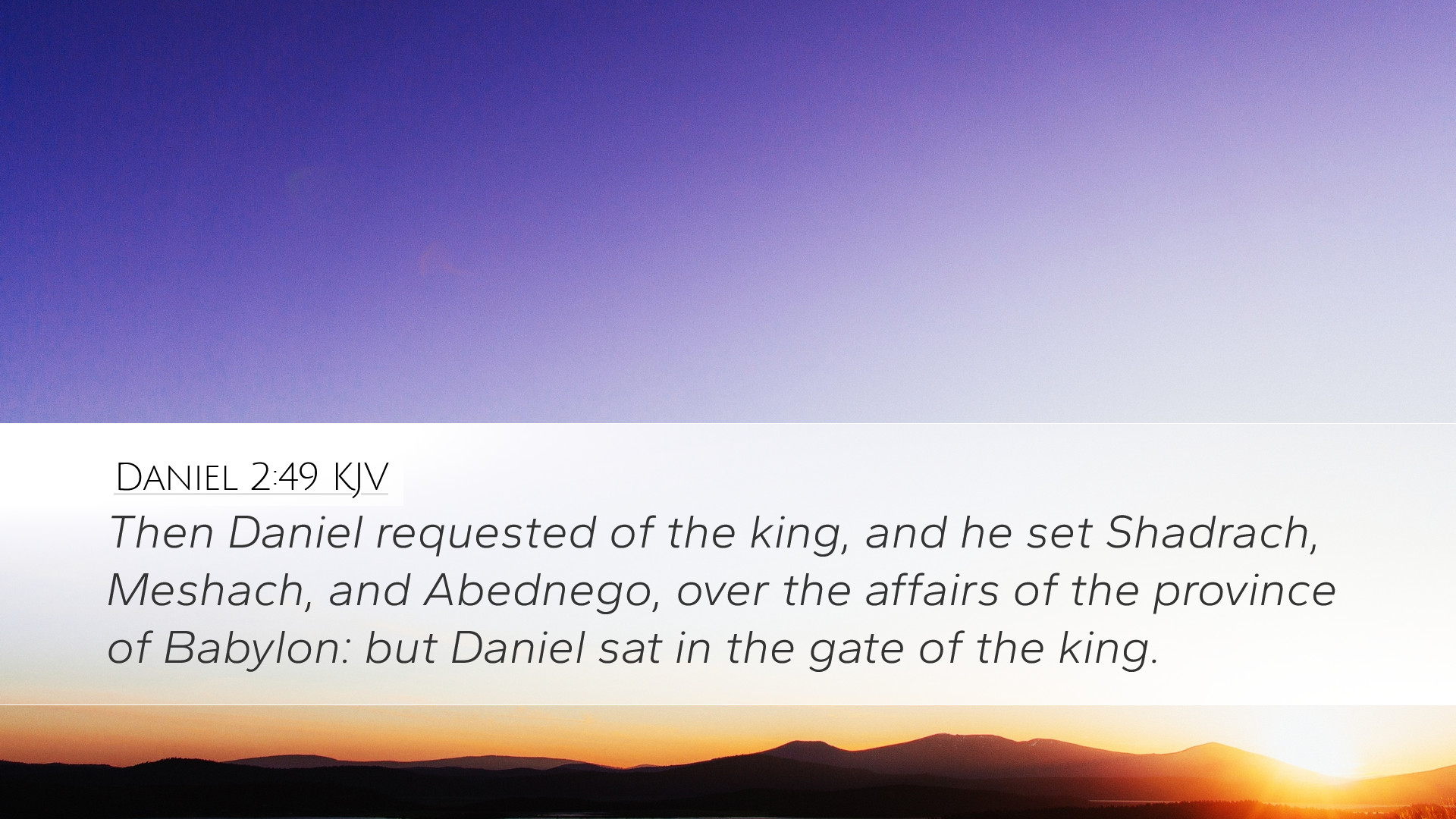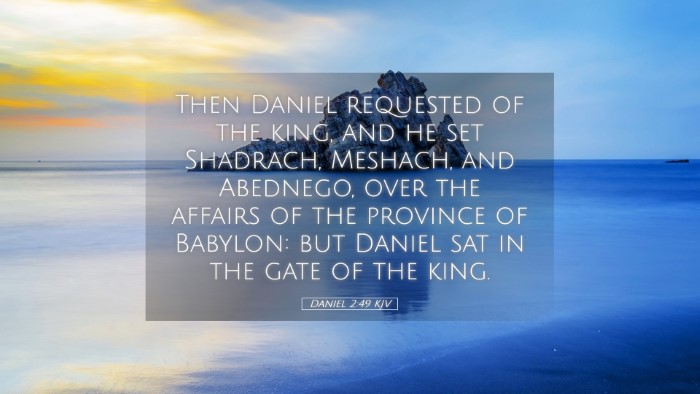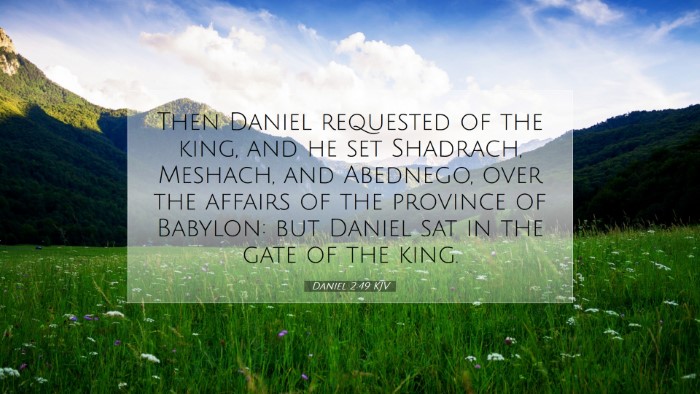Commentary on Daniel 2:49
Verse Text: "And Daniel requested of the king, and he set Shadrach, Meshach, and Abednego over the affairs of the province of Babylon: but Daniel sat in the gate of the king." (Daniel 2:49, KJV)
Introduction
The verse in question presents a pivotal moment in the Book of Daniel, illustrating the elevation of Daniel and his companions in Babylonian society following the revelation of Nebuchadnezzar’s dream. This passage is rich with implications regarding leadership, divine guidance, and the role of faithful servants in secular governance.
Contextual Background
Daniel was a young Hebrew captive in Babylon who, through God’s wisdom, interpreted a troubling dream for King Nebuchadnezzar, revealing not only the future but also God's sovereignty over kings. This divine insight was the catalyst for the favorable treatment Daniel received from the king.
Insights from Matthew Henry
Divine Favor: Henry emphasizes the role of divine favor in Daniel's request to the king. He points out that Daniel's success was not only due to his abilities but also to God’s providence guiding his actions. The proper respect and diplomacy Daniel showed were critical for any believer operating in a secular environment.
Leadership of Companions: Furthermore, Henry notes the elevation of Shadrach, Meshach, and Abednego, reflecting on how God’s blessings often extend to those who are faithful companions. Their positions signify trust and responsibility bestowed upon them, as well as God’s commitment to His servants.
Insights from Albert Barnes
Political Implications: Barnes discusses the political significance of Daniel's request to the king. He suggests that Daniel's wisdom in placing his friends in roles of authority illustrates a shrewd understanding of governance and the importance of surrounding oneself with capable allies. This act can be seen as a model for how godly leadership operates within a secular state.
Daniel's Status: In Barnes' interpretation, Daniel's position 'at the gate of the king' implies a role of significant influence. The gate of the city was where important judicial and governmental decisions were made, indicating that Daniel had become a key advisor and decision-maker under the king’s reign.
Insights from Adam Clarke
Moral Integrity: Clarke highlights that Daniel’s advancement is rooted in his moral integrity and unwavering faith in God. He indicates that despite his high position in a foreign land, Daniel remained committed to his heritage and the worship of the true God. This ethical framework is crucial for anyone in leadership.
Prophetic Significance: Clarke also points out the prophetic significance of Daniel's position, indicating that the dream's revelation and subsequent appointments were part of God's unfolding plan for the nation of Israel and the world. It demonstrates how God works through individuals to fulfill His greater purposes.
Thematic Elements
- God's Sovereignty: The elevation of Daniel and his companions underscores God’s control over human affairs.
- Faithfulness in Adversity: Daniel and his friends serve as exemplars of faithfulness in a hostile environment, showing how commitment to God can lead to divine advancement.
- Leadership and Accountability: The narrative stresses the importance of appointing capable and faithful individuals to leadership positions, paralleling contemporary discussions on leadership integrity.
- Wisdom and Prudence: Daniel’s shrewdness in advocating for his friends is a reminder of the importance of wisdom in all dealings, especially in leadership contexts.
Application for Today
This verse calls modern readers—pastors, theologians, and laypersons alike—to reflect on their roles in society. In what ways are they faithful in their secular responsibilities? How do they incorporate their faith in interactions with authority and governance? The narrative of Daniel prompts a reassessment of personal integrity, the value of wise counsel, and the necessity for spiritual discernment in leadership roles.
Conclusion
Daniel 2:49 serves as a critical lesson in faithfulness and divine providence. Through the insights of Henry, Barnes, and Clarke, we understand the significance of God's sovereignty in bestowing positions of influence upon His faithful servants. As we examine our own lives, may we strive to represent God in all spheres, employing wisdom, integrity, and a heart for service, just as Daniel did.


